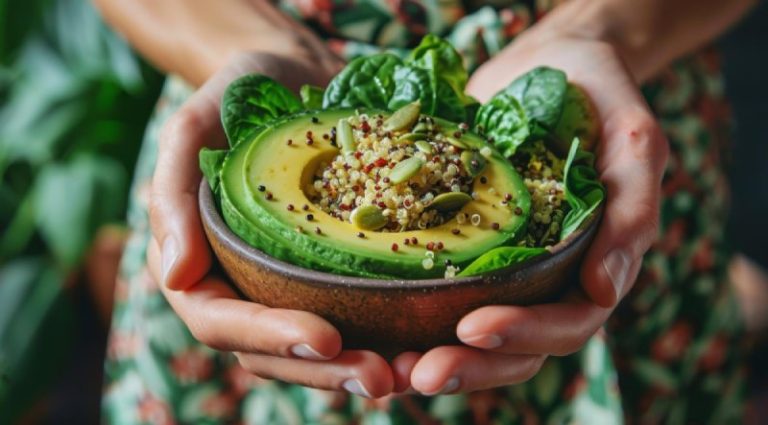
Plant-Based Diets 101: Understanding the Basics for a Healthy Start
Thinking about switching to a plant-based diet? You’ve probably heard about its countless benefits, or perhaps you’re concerned about the environment. Whatever your reasons are, you are not alone on this road. Plant based diets have gained significant popularity in recent years. More and more people are adopting plant based diets due to their benefits and for minimizing animal products. Studies have shown that plant-based diets offer numerous benefits like boosting energy levels, reducing chronic illness, improving overall health, etc.
Whether you’re making small changes or fully transitioning, understanding the basics of a plant-based diet is key to a healthier lifestyle. If you are looking to switch to this lifestyle but are unsure about where to start, we have got you covered. In this blog, we are going to share every basic thing about plant based diets to help you start this healthy journey. From meaning, key components and benefits to common myths and plant based diet for beginners, we will cover everything in detail.
What is a Plant Based Diet?
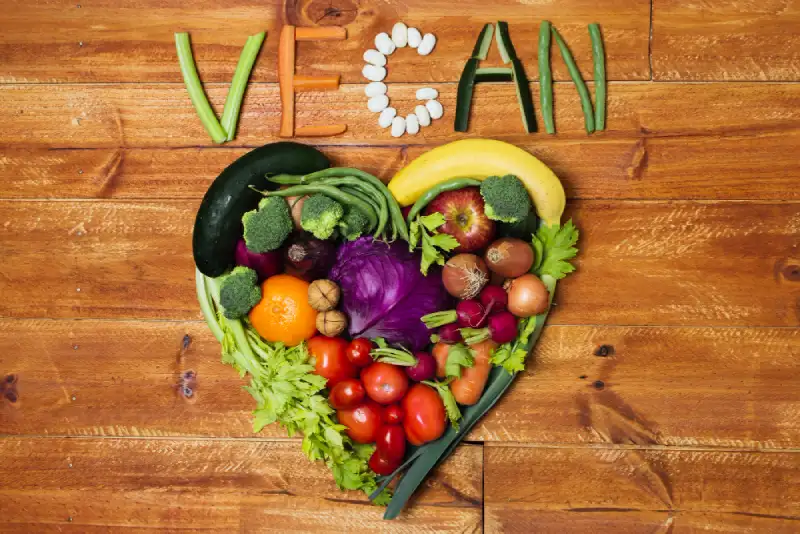
Plant based diets emphasize foods that primarily come from plants rather than refined and animal foods. It includes whole, unprocessed foods and minimizes or completely eliminates animal products like meat, fish, etc. Plant-based diets include fruits and vegetables, as well as whole grains, legumes, nuts, and seeds. Along with that, it also includes eggs and dairy occasionally, as a plant-based diet does not mean a completely vegan diet. It just means choosing more plant-based products and eating meat or dairy occasionally only. Plant based diets are rich in nutrients and fiber, offering immense benefits that improve overall health and wellness while reducing chronic diseases.
What is the Difference between “Vegan”, “Plant-Based”, and “Whole Foods” Diet?
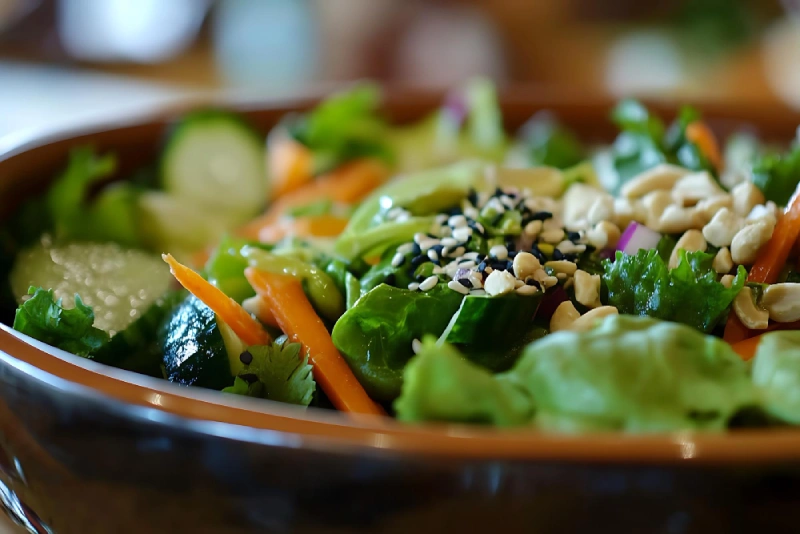
Many people often get confused between plant-based and vegan diets, and some even think both are the same and use the terms interchangeably. However, the two are distinct, particularly when it comes to food choices. Here’s a quick breakdown of vegan, plant-based, and whole-food diets:
Vegan: A vegan lifestyle is focused on no harm to animals. A vegan diet excludes all animal-based food items like meat, eggs, fish, dairy, honey, and even certain additives like gelatin. It also includes avoiding leather and other products tested on animals. Vegan food can or cannot contain white flour, oils and sugar.
Plant-Based: A plant-based approach means increasing the proportion of plant-based food (around 90%) while decreasing the animal-based products. This includes fruits, vegetables, nuts, seeds, legumes, and grains. Also, animal products are not completely excluded, like vegan diets. You can still eat animal-based products like dairy, honey, and even eggs, but only occasionally.
Whole Foods: A whole foods diet refers to adopting unprocessed or minimally processed foods that are as close to their natural state as possible. It includes reducing oil, sugar, flour, and artificial additives and instead focusing on fruits, vegetables, whole grains, and legumes. However, a whole food plant-based diet is not as strict as a vegan diet in terms of animal products if they’re unprocessed.
Key Components of a Plant-Based Diet
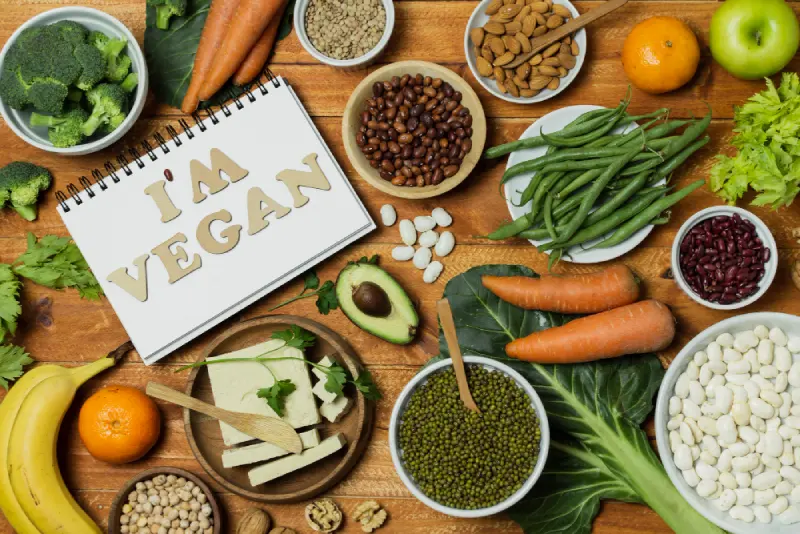
Plant based diets include a lot of things that provide the necessary nutrients, fiber and antioxidants to your body to stay healthy. Here’s a quick breakdown of the key food groups you’ll find in a plant-based diet, along with some examples:
Fruits: Any type of fruit, including apples, grapes, oranges, bananas, strawberries, mango, etc.
Vegetables: Fruits and vegetables make up the bulk of your plant-based diet. It includes all types of vegetables, including lettuce, kale, peppers, beans, corn, spinach, peas, collards, etc.
Whole Grains: Brown rice, quinoa, oats, grains, cereals, popcorn and whole wheat that provide energy, fiber, and important micronutrients.
Legumes: Beans, lentils, chickpeas, and peas that are excellent sources of protein, fiber, iron and amino acids.
Nuts and seeds: Almonds, chia seeds, flaxseeds, and walnuts are popular choices.
They are great sources of healthy fats, protein, and minerals.
Plant-Based Protein: Tofu, tempeh, seitan, and edamame are good alternatives to animal protein.
Health Benefits of Plant-Based Diets

Plant-based diets offer a lot of health benefits that have made them more popular in recent years. Around 62% of Americans now buy plant-based products for health, environmental, and ethical reasons. Plant-based diets are linked to improved heart health, better digestion, and reduced risk of chronic diseases like diabetes and obesity. Have a look at some of the most common benefits of a based diet for beginners:
Improved Health and Prevent Diseases

One of the most important benefits of a plant-based diet is that it improves heart health and reduces the risk of chronic diseases. Many studies have shown that a plant-based diet, consisting of fruits, vegetables, nuts, whole grains, and so on, is high in nutrients, fiber, and antioxidants. This reduces the chances of heart disease, chronic diseases, type 2 diabetes, and certain cancers, along with lowering blood pressure, blood sugar, and cholesterol levels.
Weight Management

Plant based diets tend to be lower in calories and saturated fats and high in fiber, which can help you feel fuller for a longer time. This slower digestion, prevents overeating, reduces cravings and aids in weight loss and maintenance. According to research, those who follow plant-based diets have a lower BMI and are less likely to become obese. Moreover, weight loss can be sustained for a longer time if a plant-based diet is followed strictly.
Better Digestion

Plant-based diets are high in fiber, which improves digestion and supports a healthy gut and microbiome. The high fiber content also prevents constipation, promotes regular bowel movements, and reduces digestive problems, leading to better digestion. A healthy gut also strengthens immunity and helps with better nutrient absorption.
Enhances Brain Health

Plant-based diet products contain antioxidants such as polyphenols and flavonoids, which help combat free radicals that cause cognitive decline. Furthermore, omega-3 fatty acids found in seeds and nuts improve brain function and boost mental clarity. Even some researchers have linked plant-based diets to a lower incidence of Alzheimer’s and improved memory retention.
Promotes Longevity

Plant based diets have the power to increase your lifespan and reduce the risk of early death from medical reasons. Even an EAT-Lancet report says a plant-based diet could prevent 11 million deaths annually. Moreover, a study of 135,000 individuals found that 3-4 servings of fruits, veggies, and legumes lower early death risk.
Increases Energy Levels

A plant-based diet significantly improves metabolism, giving you more energy and vitality without causing sugar crashes. Plant foods are high in complex carbohydrates, which give sustained energy. Unlike heavy animal-based meals that make you feel sluggish, plant-based meals help you stay light and active. Nutrient-dense plant meals also boost focus and mental clarity, allowing you to live a more energetic and productive lifestyle.
Common Myths About Plant-Based Diets
Although plant-based diets have grown in popularity due to their health benefits, there are various myths surrounding them. Let’s have a look at some of the most common myths:
Protein Deficiency
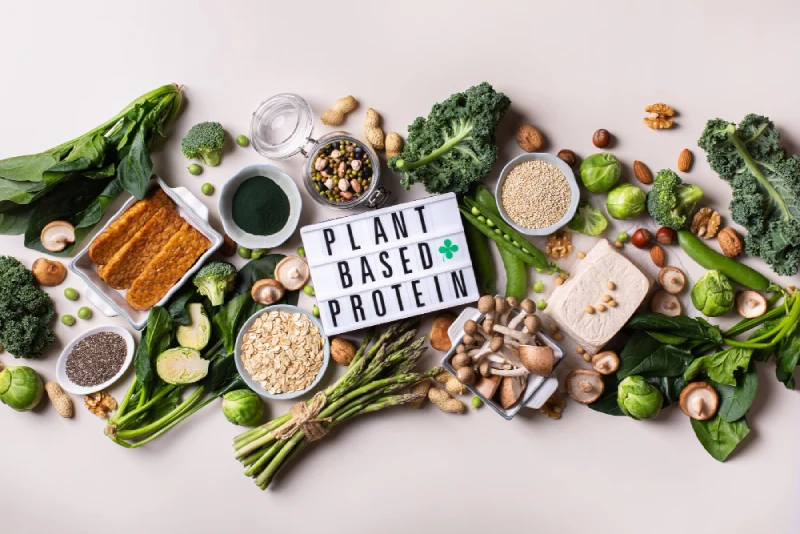
It is a common myth that a plant based diet lacks adequate protein to fulfil the body’s protein requirements. The reality is food items like tofu, beans, lentils, quinoa, chickpeas, whole grains, etc., provide plenty of protein to the body. With careful planning and using these protein sources, you can easily meet your daily protein needs, even in a plant-based diet.
Lack Of Nutrients

Another common myth is a plant-based diet lacks essential nutrients like vitamin B12, calcium, iron, and omega-3 fatty acids. The reality is a proper plant-based diet provides all the essential nutrients, including calcium, iron, B12, etc., through fortified foods or supplements. Plant milk, cereals and supplements provide B12; almonds, broccoli, kale, tahini, etc., provide calcium; and lentils, beans, spinach, etc., provide iron. Additionally, flaxseeds, chia seeds, walnuts, and algae oil are excellent sources of plant-based omega-3s.
It is Expensive

It is a myth that all plant-based products are expensive for a middle-class person to afford. The reality is some plant-based products like vegan cheeses, and faux meats are pricey, but basic staples are cost-effective as well as nutritious. Whole food plant based dietitems like beans, rice, oats, fruits, vegetables, seeds, whole grains, etc., are affordable for anyone.
Tips for Switching to a Plant-Based Diet for Beginners

Transitioning to a plant-based diet is not easy for beginners as you have to cut down and replace certain food items. Here are a few tips to start a plant-based diet for beginners:
Start Gradually

If you are new to plant-based eating, you don’t need to switch overnight. Start by adding more plant foods to your meals while reducing animal products. You can even replace one normal meal with a plant-based meal in a day or even dedicate one whole day to a whole food plant based diet.
Plan and Prepare Your Meals

Planning your meals in advance ensures you have the right ingredients; while preparing them in advance helps you stick to your diet. This also prevents the temptation of eating less healthy food during cravings and eating a balanced diet.
Educate Yourself

A plant-based diet includes many foods that offer different nutrients, fiber, and antioxidants for your body. It’s important to know which foods provide which nutrients to make sure you’re getting everything you need. Some foods are rich in protein, iron, calcium, vitamin B12, and omega-3 fatty acids. Add these foods to your diet in the right amounts to create a well-balanced meal.
Adopt Easy Swaps

Start by substituting dairy milk with soy, almond, or oat milk. Instead of using normal yogurt, use plant-based yogurt. Replace meat with tofu, tempeh, or legumes for protein. Instead of using chicken broth for soups, try using vegetables. Use chickpeas in pasta dishes and mushrooms in tacos. Lastly, swap out refined grains for whole grains like quinoa, brown rice, or oats for a more nutrient-dense and healthful choice.
Experiment with Recipes

There are many plant-based ingredients you can mix and combine to create exciting and flavorful recipes. Experiment with different fruits, vegetables, whole grains, and legumes, and try out new plant-based recipes to keep your meals interesting and nutritious. Don’t be hesitant to experiment with spices, herbs, and cooking methods to produce distinct flavors no matter what you are making.
Reduce the Oil

Although oil is made from plants, it is not considered as a whole food for a plant based diet. Many oils used in cooking are refined, calorie-dense, and low in nutrients. Therefore, it’s important to swap oils with healthier alternatives like water, olive oil, or vegetable stock to create more nutritious meals.
Replace Dessert with Fruit
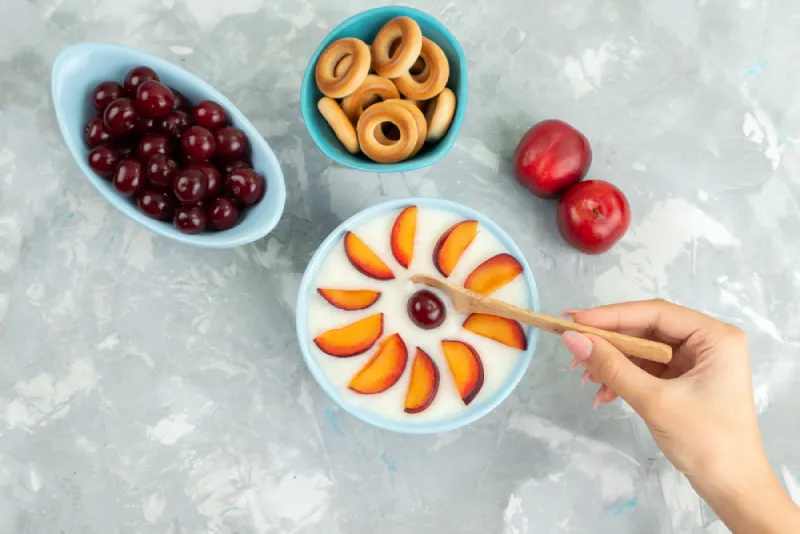
Refined sugars must be eliminated from a plant-based diet as they lack fiber and other nutrients. Eliminate sweets and desserts like candies, cake, chocolate, cookies, pastries, and other baked products. For dessert, you can take fruit in some form, like ripe, blended into smoothies, juicy peach, baked, or made into fruit salads. These can avoid the sugar crash while making you feel satisfied after eating.
Eat Lots of Vegetables

Pick a variety of colorful vegetables and fill your plate! Make sure to fill your plate with 50% vegetables of different types, especially for lunch and dinner. You can pick from a wide range of vegetables like kale, spinach, carrots, tomatoes, cauliflower, broccoli, peppers, potatoes, sweet potatoes, etc. Incorporate more vegetables into stir-fries, soups, pasta, and stews, or snack on them with dips such as hummus, salsa, or guacamole.
Stay Balanced

Ensure you’re getting a mix of nutrients, including protein, fats, and carbohydrates, to keep your body energized and nourished. This can be achieved by filling your plate with fruits, and vegetables, along with some whole grains and plant-based proteins. Ensure that the food items you include in your meal offer nutrients in the required amount.
Essential Whole Foods for a Plant-Based Shopping List

When adopting a plant-based diet, it’s also important to ensure that you get all the required proteins and nutrients your body requires. Have a look at the shopping list of key whole foods plant-based products that contain a variety of nutrients to prepare delicious and healthful meals.
- Fruits: Apples, berries, oranges, pears, mangoes, peaches, pineapple, bananas, avocados, etc.
- Vegetables: Kale, spinach, collard greens, arugula, tomatoes, broccoli, carrots, beets, cauliflower, peppers, brussels sprouts etc.
- Whole grains: Brown rice, rolled oats, farro & bulgur, quinoa, brown rice pasta, barley, etc.
- Legumes: Kidney Beans, peas, lentils, peanuts, chickpeas, black beans, etc.
- Healthy fats: Olive oil, coconut oil, avocados, etc.
- Starchy vegetables: Potatoes, sweet potatoes, pumpkin, butternut squash, corn, beets, etc.
- Seeds, nuts and nut butter: Almonds, walnuts, cashews, chia seeds, macadamia nuts, pumpkin seeds, sunflower seeds, flaxseeds, natural peanut butter, etc.
- Plant-Based Dairy Alternatives: Coconut milk, almond milk, oat milk, soy milk, cashew milk, nut butters, coconut yogurt etc.
- Plant-based protein: Tofu, tempeh, edamame, etc.
- Spices, herbs and seasonings: Basil, rosemary, cilantro, parsley, turmeric, thyme, curry, paprika, black pepper, cinnamon, salt, etc.
- Condiments: Salsa, mustard, nutritional yeast, soy sauce, vinegar, lemon juice, etc.
- Beverages: Coffee, tea, sparkling water, etc.
- Whole Food Snacks: Rice Cakes, popcorn, apricots, raisins, dates, and figs.
Conclusion
A plant-based diet is the cornerstone of good health, fewer health problems, and a healthier lifestyle. We have discussed everything about plant based diets for beginners who want this healthy and environmentally friendly switch in their lives. Plant based diet is a combination of fruits, vegetables, seeds, nuts, legumes, and whole grain. However, unlike vegan diets, it does include animal-based products like milk, honey, eggs and even meat, but very occasionally. You don’t have to switch to a plant-based diet overnight, gradual change also works perfectly well. Start cutting down animal products one by one and replace them with plant based alternatives. Make sure to have a balanced meal that offers the required nutrients, even in a plant-based




